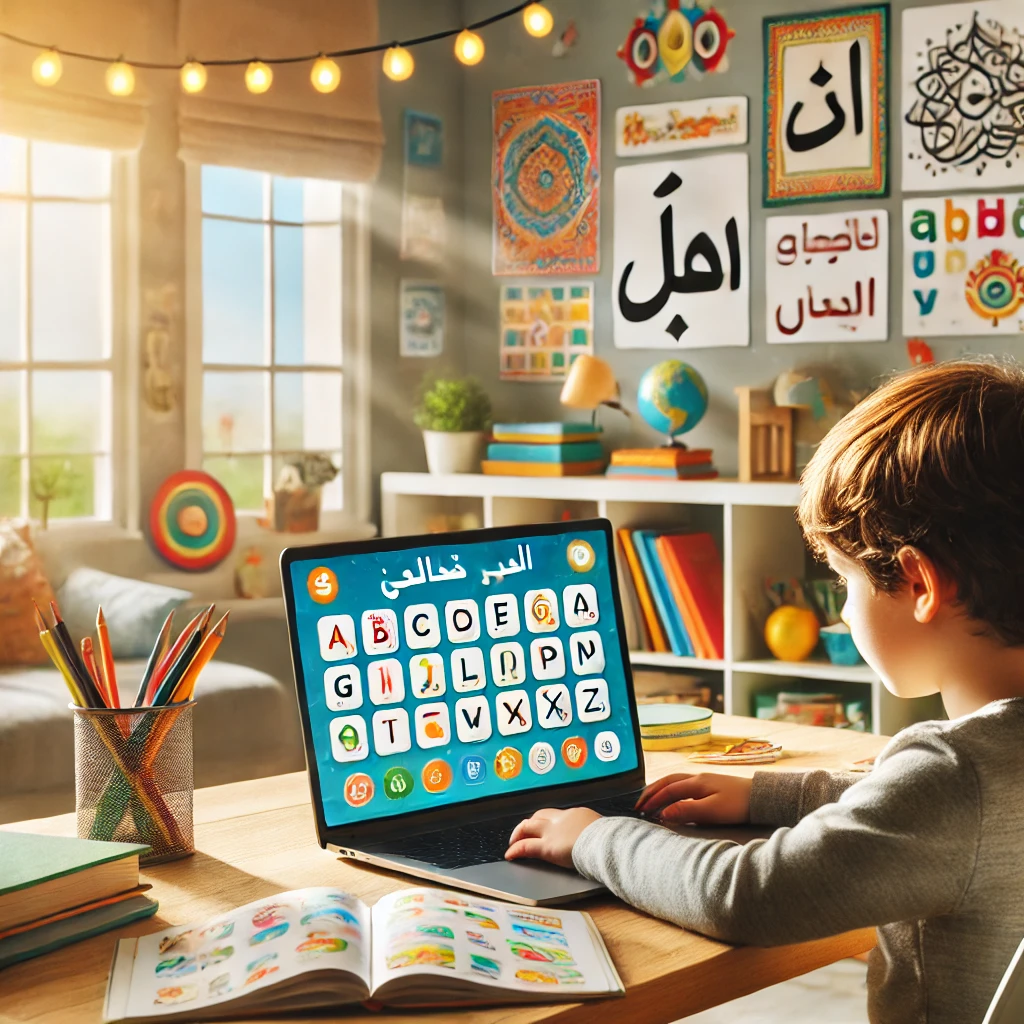
Learning Arabic is an exciting journey, especially for children, as it connects them to Islamic culture and traditions. Starting an online Arabic course can make learning accessible and enjoyable for young learners. This guide will provide the best practices to successfully begin an online Arabic course for kids, including tips to keep them motivated and engaged.
Ready to start your child’s Arabic learning journey? Visit the Al-Dirassa Institute now to explore interactive, kid-friendly Arabic courses, and book a free trial lesson today!
The first essential step is choosing an online platform that understands the specific needs of young learners. Some platforms, like those offered by the Al-Dirassa Institute, are designed specifically for children, with age-appropriate content and interactive tools to make learning more engaging.
Features to look for:
Opting for a platform that emphasizes interactivity and playful learning will help children immerse themselves more effectively in their Arabic lessons.
Don’t want to go through the translation anymore?
30 free minutes with your qualified Egyptian teacher.
For online learning to be effective, it’s important to define clear goals with your child. Learning the alphabet, mastering some vocabulary, or beginning to read short phrases are achievable goals that can be reached progressively. Adjust these goals according to your child’s age and level to ensure they remain motivating without becoming overwhelming.
Examples of goals:
These goals should be flexible to adapt to your child’s pace, allowing adjustments as they progress.
To follow an online course, it’s essential for the child to feel well-settled in a dedicated learning space. A quiet, well-lit environment free from distractions helps the child stay focused on their lessons.
Tips for a good learning space:
A well-designed space makes sessions more enjoyable and helps the child develop a learning mindset.
Kids learn best when they’re having fun. By incorporating fun activities into their learning, you can maintain their motivation and stimulate their curiosity about the Arabic language. Online games, interactive stories, and Arabic songs are tools that promote active and engaging learning.
Examples of fun activities:
These methods are essential for holding children’s attention and making each learning session more dynamic.
One of the secrets to language learning, especially for children, is repetition. Regular practice, even just a few minutes each day, is more effective than longer but infrequent learning sessions. Regular review of concepts like letters and words helps solidify knowledge.
Strategies for daily practice:
A consistent schedule allows children to build confidence and make faster progress.
Parental support is crucial for online learning, especially for young children. Parents can help by participating in some activities, encouraging their child, and showing interest in their progress. Parental involvement reinforces the child’s sense of accomplishment and their desire to keep learning.
How parents can help:
When children feel their parents are invested in their learning, they are more motivated and engaged in their progress.
Today’s technology provides tools that make online learning more effective and engaging. Using educational apps, interactive videos, and online games enriches learning and allows children to practice in a playful way.
Effective digital tools:
These tools enable children to develop Arabic language skills independently while having fun.
Finally, it’s essential to monitor the child’s progress and adjust goals based on their advancement. Short evaluations can be integrated to see how well the child is grasping new concepts. Assessment results help tailor lessons and ensure the child is prepared before moving on to more complex concepts.
Assessment strategies:
These evaluations ensure the child stays motivated and sees the impact of their efforts, which is essential for maintaining long-term engagement.
Online Arabic courses for kids offer numerous advantages when well-organized and supervised. By creating a comfortable learning environment, setting clear goals, and involving parents, children are encouraged to engage in Arabic learning with enthusiasm and determination. Digital tools and playful methods further support this learning, making each session more enriching and interactive.
By following these tips, you’ll help your child begin their Arabic learning journey in the best possible way, fostering effective and lasting progress. To learn more, visit our website and discover our online Arabic courses specially designed for children.
TO know more: discover our kids program to learn Arabic

Al-dirassa Institute offers you a gift to help you begin your journey to being fluent in Arabic and learning the Quran.

Al-dirassa Institute offers you a gift to help you begin your journey to being fluent in Arabic and learning the Quran.